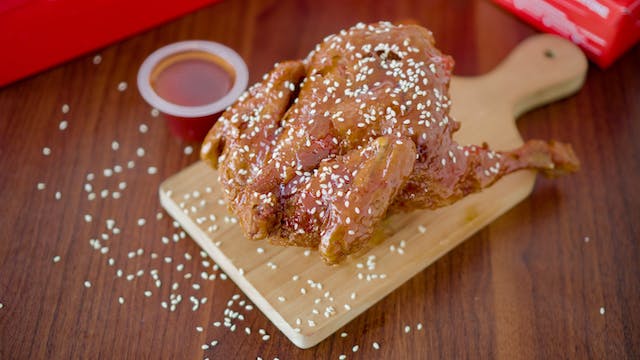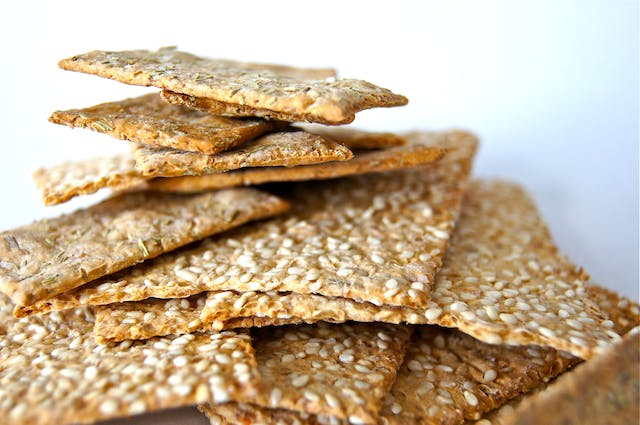You may have seen them sprinkled on your bread, salad, or sushi, but did you know Sesame seeds are way more than just a garnish? These tiny seeds are packed with nutrients, antioxidants, and flavor and have been used for centuries in various cuisines and cultures. But before you go nuts over these seeds, you should also be aware of some of the risks and precautions associated with eating them raw or in large amounts.
In this article, we will explore the surprising health benefits and risks of eating Sesame seeds and explore some exquisite recipes you can try. Whether you prefer hulled, unhulled, black, or white, Sesame seeds can add a crunchy and nutty touch to your dishes and health.
The Tiny Seeds with Big Health Benefits
Sesame seeds are small, oil-rich seeds that grow in pods. They have been used in folk medicine for thousands of years. Here are five surprising nutritional health benefits of eating Sesame seeds:
Lower Your Cholesterol and Triglycerides
Sesame seeds contain plant compounds called lignans and phytosterols, which can help reduce LDL cholesterol and triglyceride levels in your blood. This can lower your risk of heart disease and stroke.
Support Your Bone Health
They are rich in essential minerals that are healthy for your bones. Calcium helps build and maintain bone density, while magnesium and phosphorus help regulate bone metabolism.
Boost Your Immune System
These are rich in zinc, copper, iron, and selenium, which are important for your immune system. Zinc and copper help produce and activate white blood cells, which fight infections. Iron helps transport oxygen to your cells, while selenium helps prevent oxidative stress and inflammation.
Improve Your Skin and Hair
Sesame seeds are high in vitamin E, an antioxidant that protects your skin and hair from free radical damage. Vitamin E also helps moisturize and heal your skin and hair, preventing premature aging and hair loss.

Enhance Your Brain Function
Seeds contain thiamine, niacin, and vitamin B6, which are B vitamins that help your brain function. Thiamine helps produce neurotransmitters, which are chemical messengers in your brain. Niacin helps protect your brain cells from damage, while vitamin B6 helps regulate your mood and memory.
How do you eat sesame seeds safely and avoid the risks?
Sesame seeds are delicious and nutritious but also have some potential risks. Here are four things to watch out for when eating Sesame seeds:
Allergic Reactions
Sesame seeds are among the most common food allergens, especially in Asia, Africa, and Europe. They can cause mild to severe symptoms, such as hives, swelling, itching, wheezing, and anaphylaxis. If you have a sesame allergy, you may need to avoid foods that contain Sesame seeds, oil, paste, or flour.
Blood Sugar And Pressure
Sesame seeds may lower blood sugar and blood pressure levels, which can be beneficial for some people but harmful for others. If you have diabetes or hypoglycemia, you may need to monitor your blood sugar carefully when eating Sesame seeds. If you have low blood pressure or take medications that affect blood pressure, you may need to limit your intake of Sesame seeds or consult your doctor before eating them.
Kidney Stones
Sesame seeds are high in oxalates, compounds that can bind to calcium and form kidney stones. If you have a history of kidney stones or a high risk of developing them, you may need to avoid or reduce your consumption of Sesame seeds and other high-oxalate foods, such as spinach, rhubarb, and beetroot.
Choking Hazard
Sesame seeds are small and hard, which can make them difficult to swallow or chew, especially for young children. They can also get stuck in the throat or the appendix, causing pain and inflammation. To prevent choking, you may need to grind or soak Sesame seeds before eating them or avoid giving them to children under the age of four.
Delicious Recipes of Sesame seeds
Sesame seeds are tasty and packed with protein, fiber, calcium, and antioxidants. Here are three delicious recipes that showcase the versatility of Sesame seeds in different cuisines.
Sesame Seed Crunch Candy
This is a simple and addictive treat that only requires three ingredients: Sesame seeds, honey, and sugar. You can use white or black Sesame seeds or a mix of both for a contrast of colors and flavors. To make this candy, you need to toast the Sesame seeds in a skillet until golden and fragrant, then boil the honey and sugar in a saucepan until they reach a hard-crack stage.
Then, pour the honey mixture over the sesame seeds and spread it on a baking sheet. Once it cools and hardens, you can break it into pieces and enjoy it. This candy is gluten-free, paleo, and optionally vegan.
Sesame Roasted Kale
Kale is a superfood rich in vitamins, minerals, and antioxidants. Roasting kale with Sesame seeds gives it a crunchy, nutty texture and flavor. To make this snack, you need to wash and dry the kale leaves, then tear them into bite-sized pieces.
Toss them with oil, salt, pepper, and Sesame seeds, and scatter them on a baking sheet. Bake them in a preheated oven until crisp and browned, about 15 to 20 minutes. You can serve them as a snack or a side dish.

Sesame Rice
Sesame rice is a flavorful and aromatic dish popular in South Indian cuisine. It is made with cooked rice, Sesame seeds, spices, and herbs. To make this dish, roast some Sesame seeds, urad dal, chana dal, red chilies, curry leaves, garlic, cumin, and coconut in a skillet until golden and aromatic.
Then, you need to grind them into a coarse powder. Heat oil in another skillet and temper it with mustard, red chili, curry leaves, and asafoetida. Add the cooked rice and salt and toss well. Sprinkle the sesame powder over the rice and mix well. You can serve this rice hot or cold, with some yogurt or pickle.
Final Thoughts
Sesame seeds are more than just a garnish. They are a powerhouse of nutrition, flavor, and health benefits. But they also come with potential risks, so you should eat them in moderation and be aware of allergies or sensitivities. Whether you sprinkle them on salads, bake them into cookies, or blend them into tahini, Sesame seeds can add a crunchy and nutty touch to your diet.







